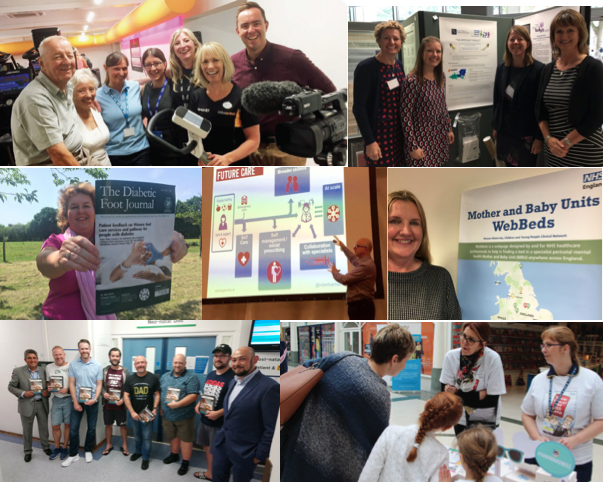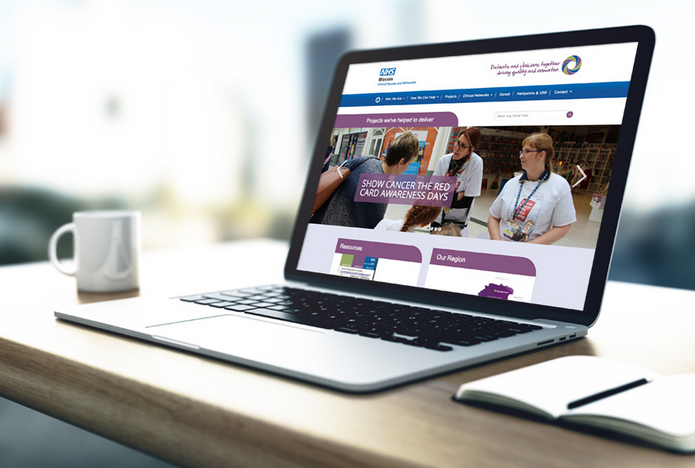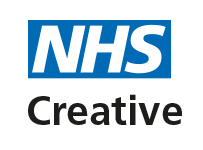
Under the bonnet of a clinical senate
Hear the term ‘senate’ and you probably think of either the United States of America or the Ancient Roman Empire. But in the NHS, it’s a term that means something very different.
Clinical senates – alongside clinical networks – were set up in 2012 to support clinical commissioning groups to provide independent and impartial strategic advice and guidance to commissioners and other stakeholders to assist them to make the best decisions about healthcare for the populations they serve.
In March 2018, we were asked by Wessex Clinical Senate and Networks to provide them with a marketing and communications support service. We have provided our design service to this client for a number of years, but as a small and dispersed group of staff, the Senate and Network did not have a dedicated communications professional. It was tricky for them to justify the cost of employing a new member of staff, but yet the need to communicate was clear.
How could Wessex Clinical Senate and Network present themselves in a way that was meaningful to local commissioners, healthcare professionals and stakeholders? How could they showcase and promote the work they were undertaking across the Wessex region? How could they explain their role and purpose to the general public in a way that would be easy to understand? And how could they transcend their rather lofty title? (the literal translation of ‘Senate’ is ‘Assembly of Elders’ – hardly a term that’s inclusive or engaging!)
Time to get our hands dirty
I’m definitely no mechanic, but I have no problem getting my hands dirty when it comes to looking under the bonnet of what’s needed to solve a marketing challenge. We agreed an informal arrangement whereby NHS Creative would provide a communications support service on the equivalent of a two-day per week basis. This was to include managing their website and social media accounts, writing blogs, promoting conferences, writing up case studies, interviewing key contacts AND providing our usual design service.
This was not unchartered territory. We’ve provided a similar service in the past to Bracknell Forest Council’s public health team and NHS Hampshire’s shared communications team. Such an arrangement gives us the chance to make a sustained difference to a client’s marketing strategy over a prolonged time period. It also has many key benefits in comparison to employing a dedicated member of staff. For example:
- Flexibility
Our hours don’t have to be provided on particular set days, we can potentially offer cover across a five day per week period where necessary - No staff employment headaches
No interview or shortlisting process, no employment contracts, no staff inductions, no employment contributions to a pension - Access to specialist expertise
Marketing professionals with extensive experience in delivering campaigns across NHS healthcare economies and the wider public and third sector - No long-term commitment
A trial period, followed by a six or twelve month agreement that can be extended, reviewed or terminated at the end of its term without a cost implication - Accountability
We record timesheets on work completed and report monthly, giving a good insight and overview into the value we provide - Access to our support network
As well as buying dedicated time from a named contact, the assurance of support and expertise from the wider NHS Creative team
One of our first challenges was to cut through the technical jargon and business speak, and to understand what a clinical senate and network actually is – and crucially – what it does. For the past 18 months we’ve held a monthly marketing clinic at the client’s HQ, whereby any manager with a particular marketing challenge is invited to drop-in and brainstorm a solution. During this time, I’ve met many inspirational and dedicated healthcare professionals delivering innovative projects that are making a real difference to people’s lives. It helped greatly to improve my understanding of the important work performed by Wessex Senate and Networks.
While the people I met were all experts in their individual fields, they were not necessarily the best at promoting their achievements. It’s been my role to extract the story (including where possible to obtain photography of the project in action), find the personal touch, and celebrate the outcomes. After consultation with key contacts and stakeholders, we agreed a new strapline: ‘Patients and clinicans together driving quality and innovation’.

This philosophy places people at the centre of everything that the Senate and Network does. It may seem obvious, but one thing that was lacking in previous reports and on the Senate website itself, was any kind of reference to a human story. There were no photos – meaning there was no face to the organisation, and subsequently no perceivably soul. We set about trying to change that.

Placing people at the centre of our story-telling
Intially offered on a 12 week trial period, we’ve since provided communications support to Wessex Clinical Senate and Networks for the past 18 months. And although I’ve been the lead contact, 10 of our 12 NHS Creative staff have been regular contributors to the contract in one capacity or another. During that time, here’s some of our key achievements:
Website redevelopment
Before NHS Creative’s involvement, there was a separate website for the Senate and one for the Clinical Network. Both sites were text heavy with no photography or graphic elements. Site navigation was clunky, there was little or no fresh content, and performance on Google was poor. Six months later, we’d delivered one single replacement site, complete with showcase projects, a lively blog, an extensive resource library, and a ‘meet our team’ section. There’s also a dedicated section for each network with links to relevant resources and news items.

Social media presence
For the first six years of their existence (2012-2018), there was no Twitter account, LinkedIn page or YouTube channel. We quickly rectified this and over the past 18 months we’ve concentrated our social media activity on Twitter – fast becoming the social media network of choice for healthcare professionals. At the time of writing, their Twitter page has 476 followers. As with all social media accounts, it’s a work in progress, but with ever-increasing levels of engagement, we’re building a loyal and relevant audience for promoting a rolling programme of workshops, conferences and awareness raising campaigns.
Content development
Key to the success of the website and social media pages has been the regular development of fresh and engaging content. Here’s some highlights of what we’ve helped to deliver so far:
- There’s currently nine key case studies on the site, showcasing the great work delivered
- A library of 47 resource items (at the time of writing) with unrestricted access for download
- A blog section comprises 33 blogs and counting, with contributions from a wide range of service leads
- One article published in a professional journal as a front page story with our copywriting support
- A total of 821 tweets over 18 months and 476 Twitter followers at the time of writing
It’s often said that content is king, but rarely more so than in a project like this. And as I’ve written far too much content to this blog already, I’ll leave the final word to our client:
“It’s been a pleasure to work with NHS Creative over the past 18 months. They’ve helped us to transform the way that we communicate to our key target audiences, enhancing our reputation as a creative, dynamic and responsive body at the forefront of enabling change across the NHS in Wessex.
“NHS Creative has worked with the whole team and helped us to identify what has really made a difference to our clinicians and patients. They have helped team members to better articulate these benefits, and produced a range of resources that can be used by clinicians and patients across Wessex and beyond. As we are about to embark on a period of service reconfiguration, I hope to continue and develop this successful working relationship.”
Debbie Kennedy, Senate Manager



